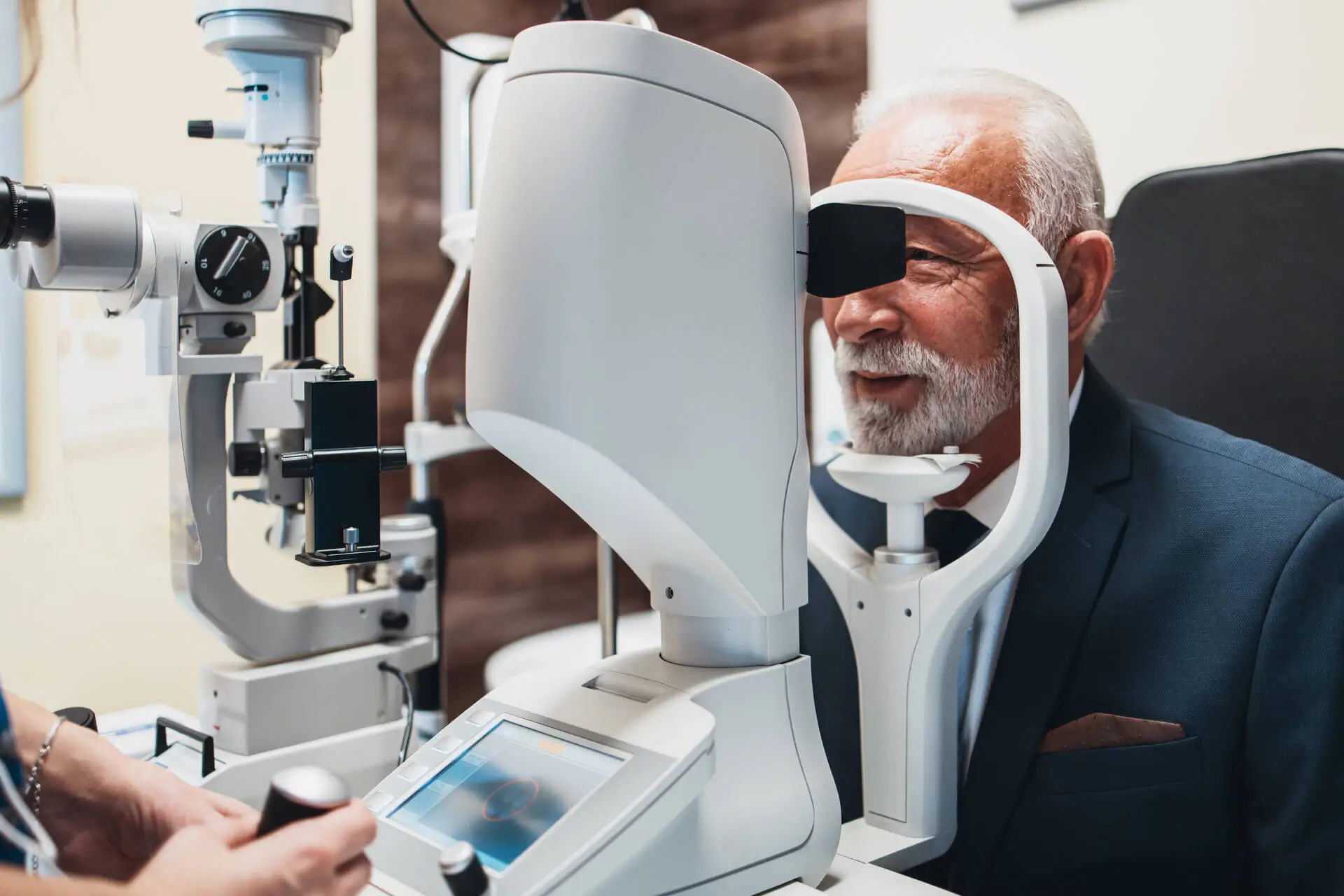
Glaucoma
Protecting Your Vision
Managing Glaucoma for a Lifetime of Vision
Glaucoma is a progressive eye condition that occurs when increased intraocular pressure (IOP) damages the optic nerve. This damage can lead to gradual vision loss, beginning with peripheral vision and, if left untreated, potentially resulting in blindness.
Unlike many other eye diseases, glaucoma often develops silently, without noticeable symptoms in its early stages, making regular eye exams essential for early detection and treatment.
While many associate glaucoma with high eye pressure, the condition encompasses a range of disorders that can harm the optic nerve. Even individuals with normal eye pressure can develop glaucoma, which is why comprehensive testing is crucial.
Without timely intervention, glaucoma can lead to irreversible vision impairment.
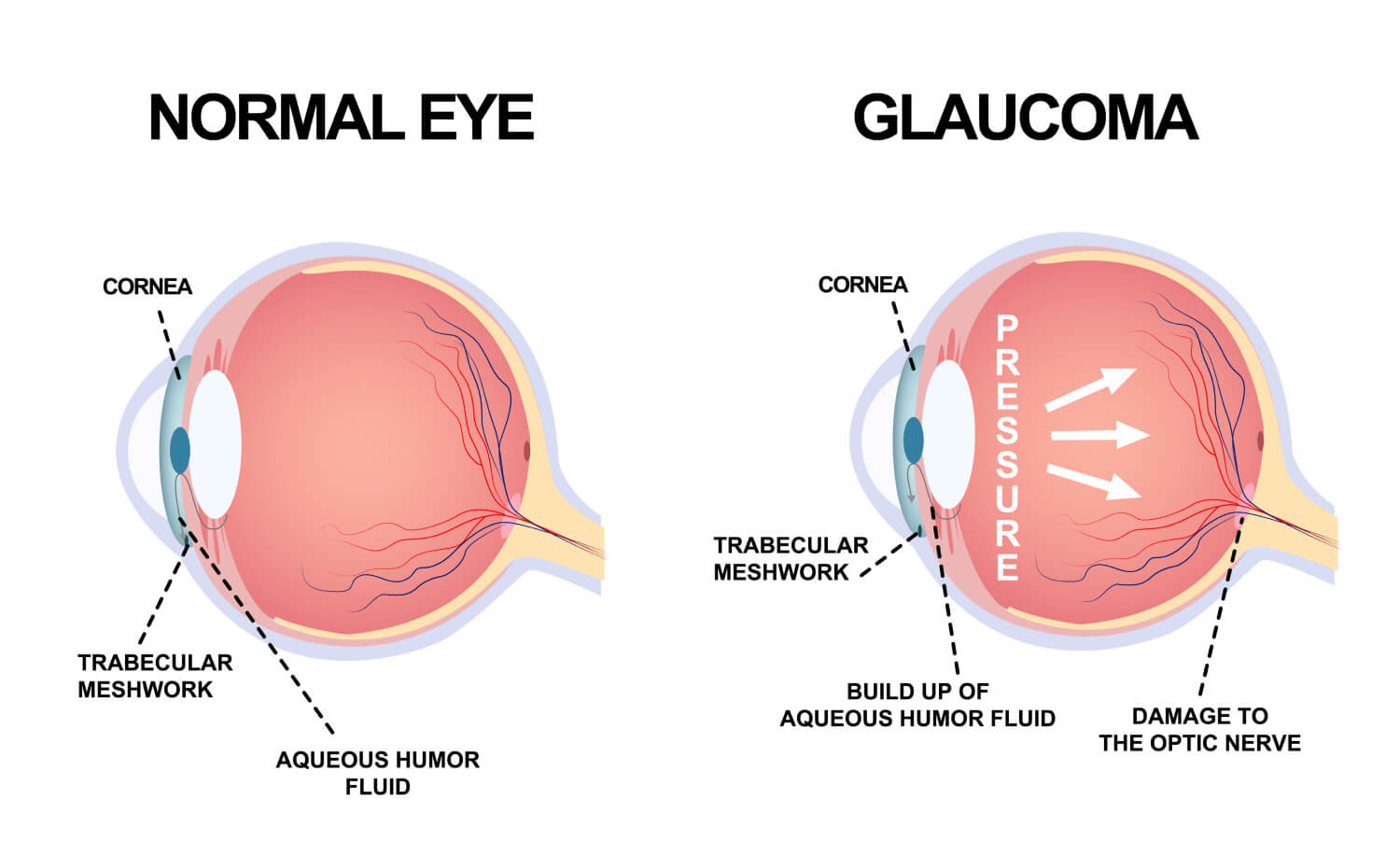
Who Is at Risk for Glaucoma?
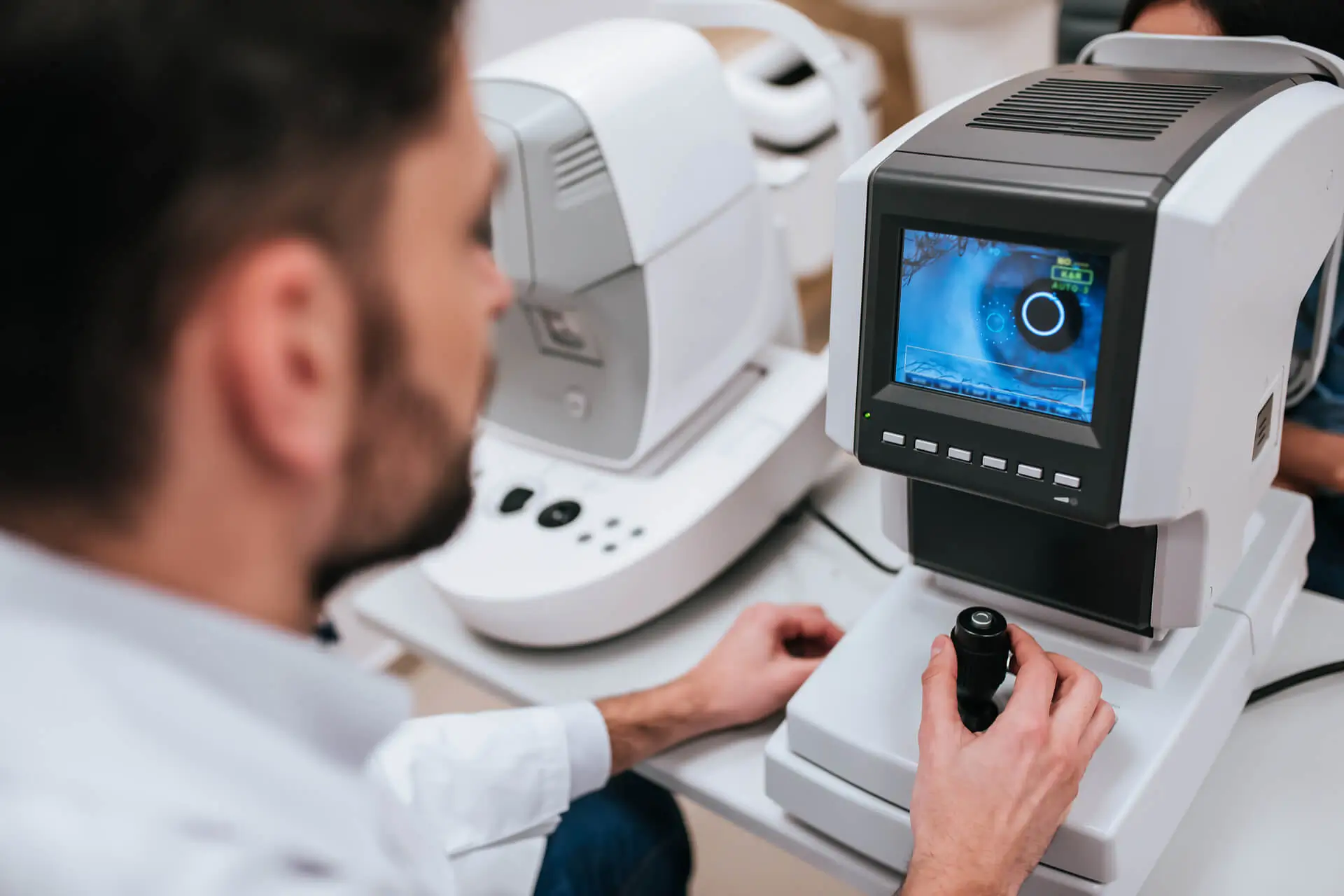
Glaucoma can affect individuals of all ages but is more common in those over 40. Key risk factors include:
- Family history of glaucoma
- Diabetes or high blood pressure
- Prolonged use of steroid medications
- Thin corneas or optic nerve abnormalities
- African, Hispanic, or Asian ancestry
- Previous eye injuries
How Often Should You Get Tested?
At our clinic, we recommend the following glaucoma screening schedule:
- Adults over 50 with no family history or underlying health conditions: every two years.
- Individuals with a family history of glaucoma or health risks like diabetes or hypertension: annually from age 40.
- Siblings of glaucoma patients are at a significantly higher risk and should be examined every year.
Routine eye exams with glaucoma testing are crucial for early detection and management of this condition.
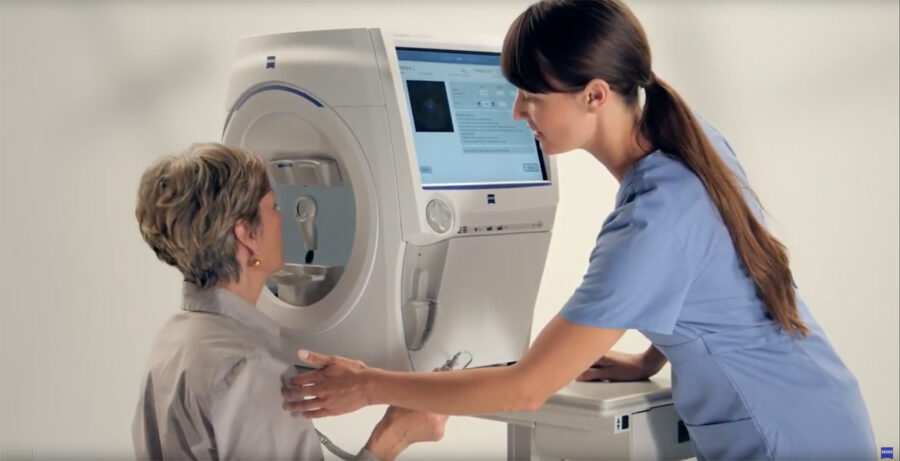
Advanced Glaucoma Treatment Options
Although glaucoma has no cure, it can be effectively managed with early intervention. Our specialists offer three primary treatment options to control glaucoma and prevent further vision loss:

Medication (Eye Drops)
For many patients, prescription eye drops are the first line of defense against glaucoma.
These medications work by either reducing fluid production within the eye or enhancing its drainage to lower intraocular pressure. When used as prescribed, eye drops can successfully control glaucoma in most cases.
However, some individuals may experience side effects or require additional treatments.
Laser Treatment
Laser therapy is an advanced option for managing glaucoma, particularly for those who struggle with eye drop use. The two primary laser procedures include:
- Selective Laser Trabeculoplasty (SLT): This procedure improves drainage through the trabecular meshwork, reducing intraocular pressure by up to 25%.
- Laser Peripheral Iridotomy (LPI): Used primarily for angle-closure glaucoma, this procedure creates a small opening in the iris to improve fluid outflow.
Laser treatments can be highly effective, offering a non-invasive alternative or complement to medication.
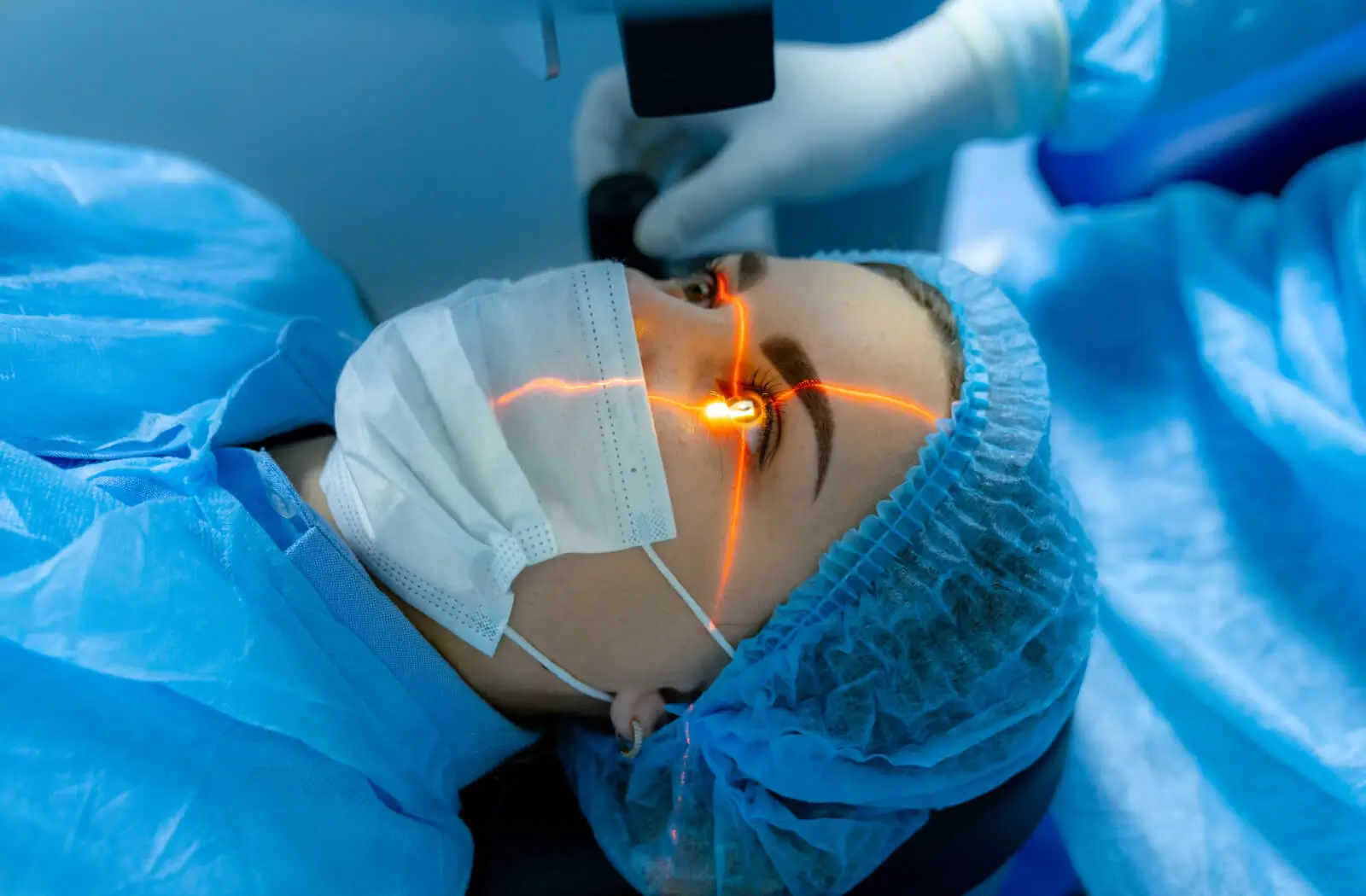

Surgical Intervention
For patients who do not achieve stable control with medication and laser therapy, surgical procedures may be necessary. Options include:
- Trabeculectomy: A procedure that creates a new drainage channel to lower eye pressure.
- Glaucoma Drainage Implants: Tiny valves are implanted to help regulate fluid drainage.
- Minimally Invasive Glaucoma Surgery (MIGS): Advanced techniques that offer effective pressure reduction with faster recovery times.
Take Control of Your Eye Health
Early detection and consistent treatment are key to preserving vision in glaucoma patients. If you are at risk or overdue for an eye exam, schedule an appointment with our expert team today. We are committed to providing personalized care and the latest advancements in glaucoma management to help safeguard your sight.